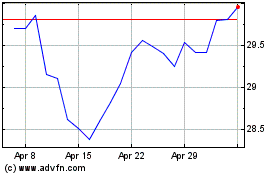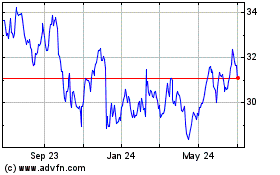By Saabira Chaudhuri in London and Gabriele Steinhauser in Brussels
The European Union's top court on Wednesday dismissed legal
challenges against tightened tobacco regulations, in a move that
paves the way for plain packaging and other restrictive measures to
be rolled out across Europe.
The European Court of Justice upheld the 2014 Tobacco Products
Directive, which bans menthol cigarettes, mandates bigger warning
labels on cigarette packaging and, for the first time, sets limits
on electronic cigarettes, including on how much nicotine they can
contain. The court also told Poland and Romania, which wanted to
stick to less restrictive measures, that they had to conform with
the new EU-wide obligations.
The directive was subject to an intense lobbying
battle--involving traditional tobacco companies and new players in
the growing market for e-cigarettes--and led to the ousting of an
EU health commissioner.
But on Wednesday, the European Court of Justice upheld the law
in its entirety. The decision cannot be appealed.
The ruling is a blow for British American Tobacco PLC and Philip
Morris International Inc., which in 2014 had filed a legal
challenge against certain parts of the directive. The companies
objected to the use of certain product descriptors, the mandatory
graphic warning and the ban on certain flavorings, among other
things, saying the European Commission had exceeded its
authority.
"We stand by our belief that the Tobacco Products Directive is a
clear example of the EU overstepping the limits of its authority,"
said a BAT spokeswoman on Wednesday. "The reality is that many
elements of the directive are disproportionate, distort competition
and fail to respect the autonomy of the member states."
Marc Firestone, general counsel of Philip Morris International,
said the ruling isn't the final word on the overall legality of
plain-packaging laws. "Today's judgment is specific to detailed
aspects of EU law, and reflects the substantial deference that the
Court of Justice often shows to the EU institutions when reviewing
EU legislation," he said.
A spokesman for Imperial Brands PLC, which didn't file a
separate suit but participated as an interested party to Philip
Morris's case, said the company was disappointed by the
judgment.
The new EU-wide rules come into force later this month, with
countries given transition periods for certain measures.
Wednesday's decision also marks a major setback for e-cigarette
makers. The limitations on e-cigarettes were among the most
disputed provisions of the directive. E-cigarette makers argued
that their products weren't tobacco products and thus shouldn't be
dealt with under the new law. Makers of regular cigarettes,
meanwhile, complained that e-cigarettes faced looser rules.
The directive limits the nicotine content of e-cigarette liquids
to 20 milligrams per milliliter, requires that health authorities
be notified of the products, and bans advertising and
sponsorship.
Wednesday, the court said the new limits were warranted. "The
identified and potential risks linked to the use of electronic
cigarettes have led the EU legislature to act in a manner
consistent with the requirements stemming from the precautionary
principle," it said.
U.K. e-cigarette company Totally Wicked, which had challenged
the directive, said the measure "will adversely impact the
availability of good quality, electronic cigarettes and e-liquids,
and jeopardize the life-changing potential of vaping, resulting in
a major detrimental impact on the public health of millions of
people across the EU."
The court said banning menthol, the most popular flavoring for
traditional cigarettes, was in line with EU law.
"Menthol, by its pleasant flavor, makes tobacco products more
attractive to consumers," the court said. "Reducing the
attractiveness of those products may contribute to reducing the
prevalence of tobacco use and dependence among new and continuing
users.
It said a requirement that health warnings cover at least 65% of
the front and back of cigarette packages "did not go beyond the
limits of what is appropriate and necessary." National governments
will also still be allowed to go beyond this minimum requirement,
for instance by mandating plain packaging, which prohibits
cigarette makers from using distinctive fonts and colors.
The decision paves the way for the U.K. to go ahead with its own
law on plain packaging, slated to take effect later this month.
Tobacco companies had brought a separate case in the U.K.
challenging the legality of plain packaging, which was heard in
December. A judgment--widely expected to favor plain packaging--is
due later this month. France and Ireland are among other EU states
that have said they would adopt stricter packaging limitations.
Exane BNP Paribas analyst James Bushnell described Wednesday's
ruling as "not a surprise, but clearly not positive."
The biggest danger to the tobacco industry is a more global
spread of plain packaging as the latest adopters lend legitimacy to
the regulation, " he said.
Write to Saabira Chaudhuri at saabira.chaudhuri@wsj.com and
Gabriele Steinhauser at gabriele.steinhauser@wsj.com
(END) Dow Jones Newswires
May 04, 2016 08:07 ET (12:07 GMT)
Copyright (c) 2016 Dow Jones & Company, Inc.
British American Tobacco (NYSE:BTI)
Historical Stock Chart
From Mar 2024 to Apr 2024

British American Tobacco (NYSE:BTI)
Historical Stock Chart
From Apr 2023 to Apr 2024
